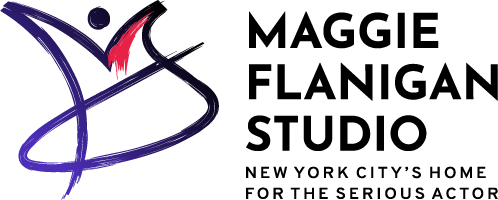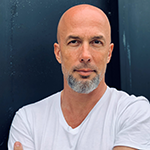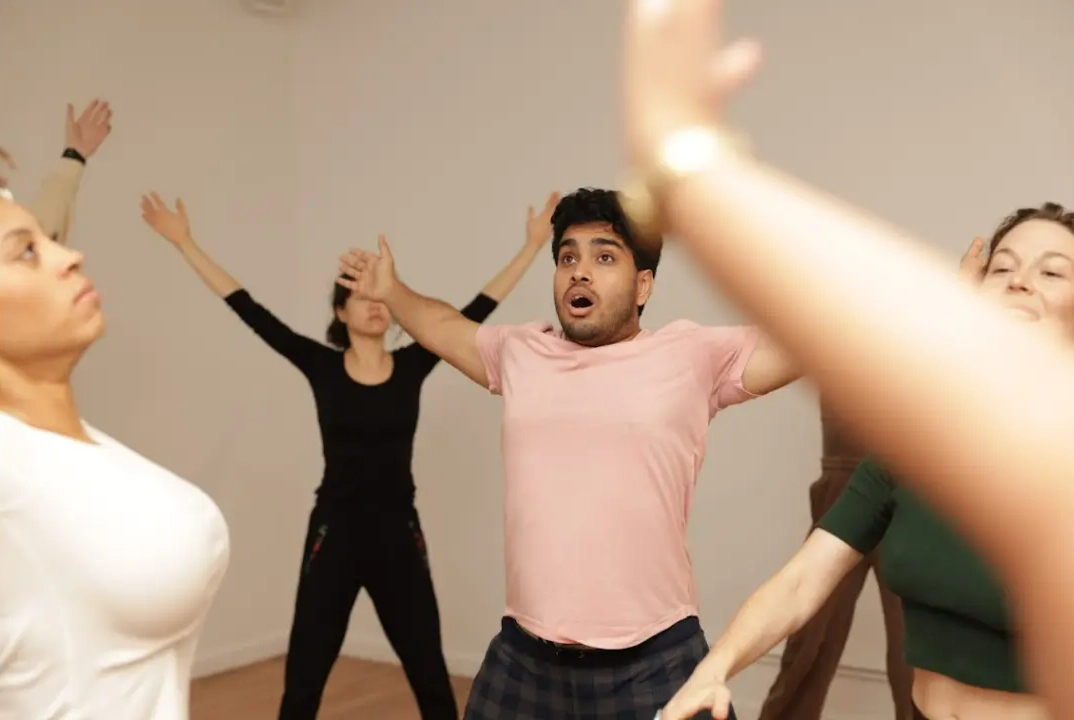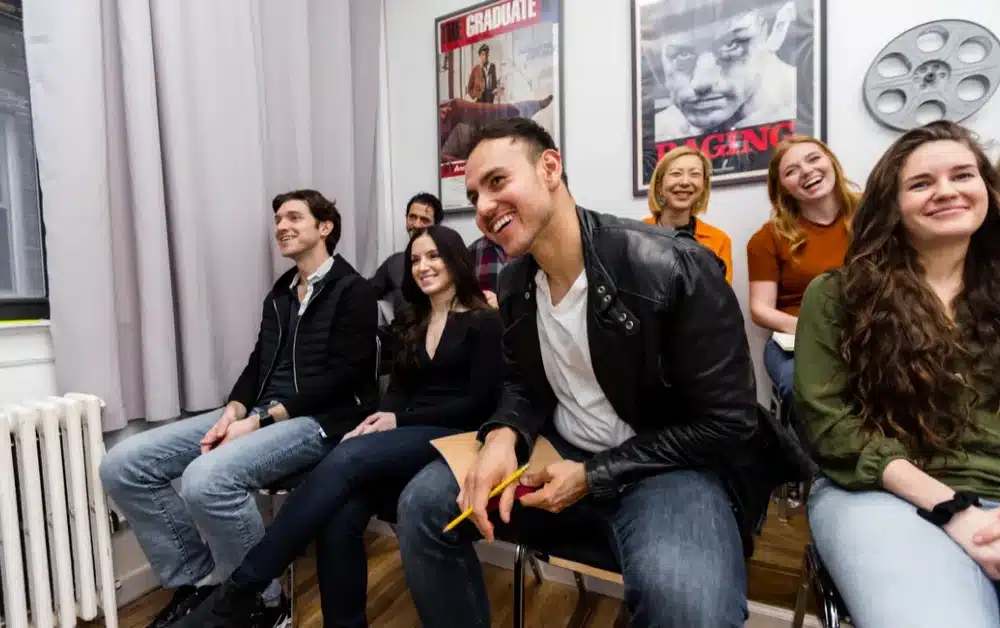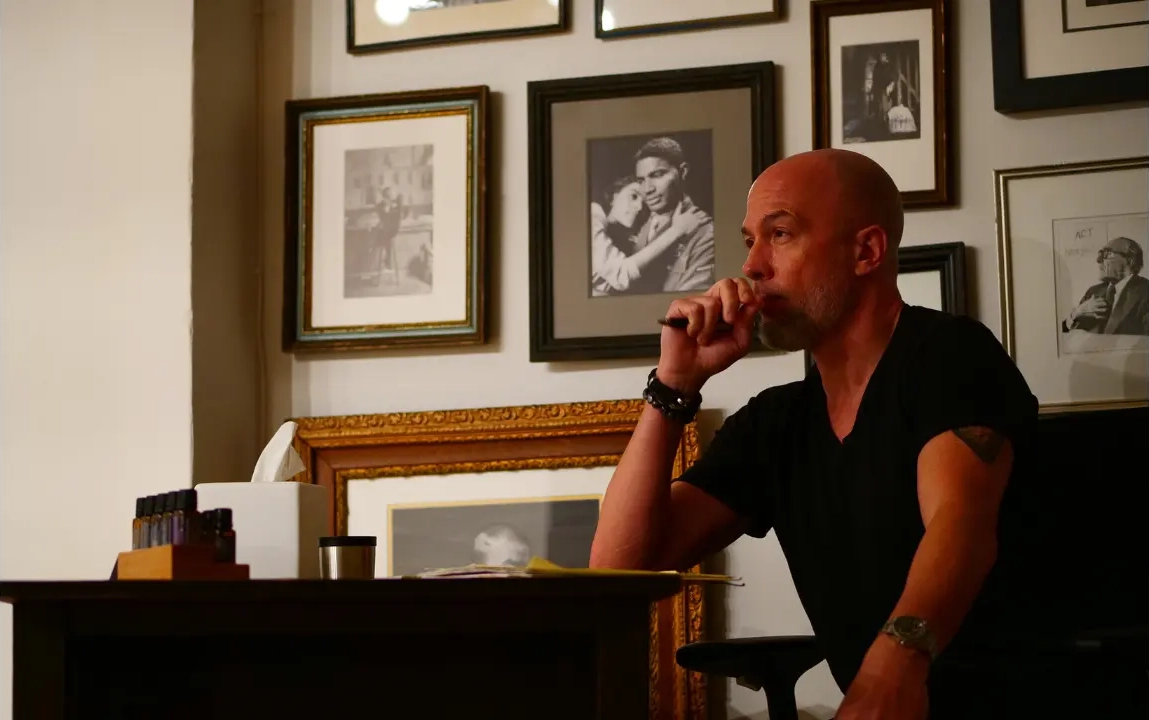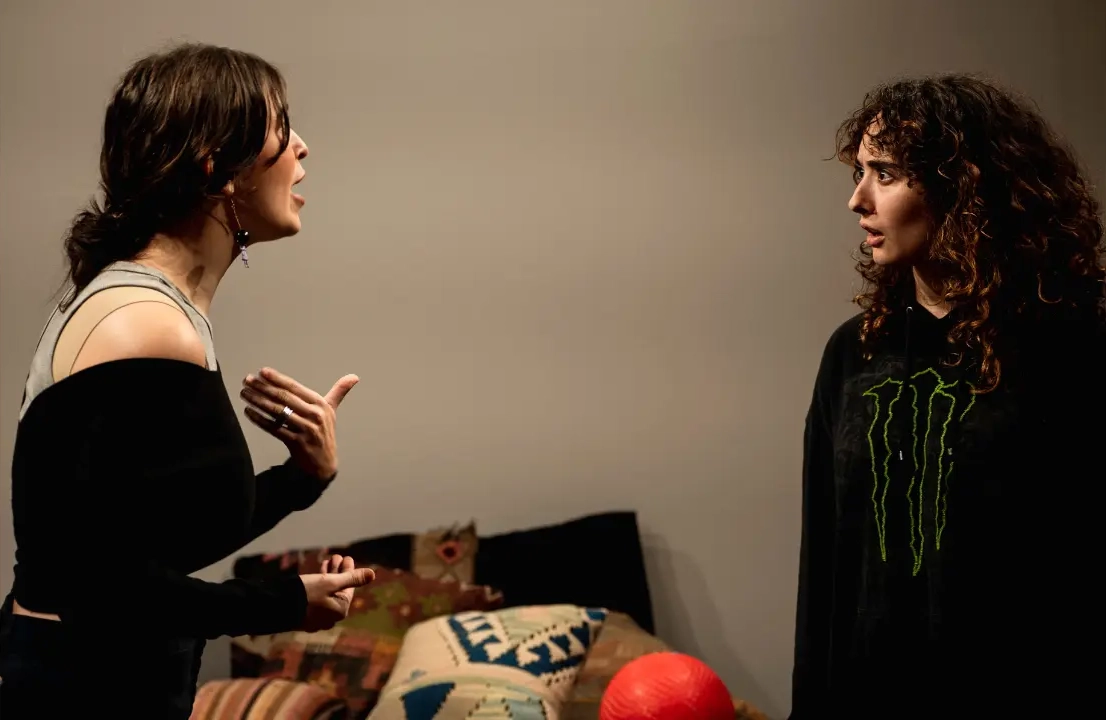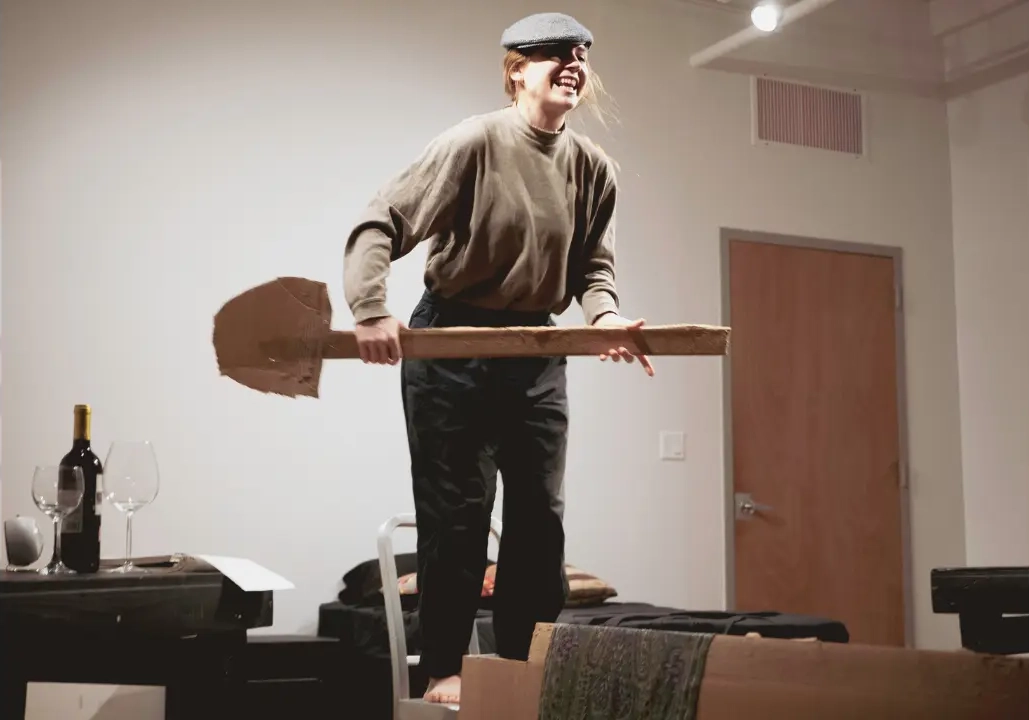APPLY FOR ADMISSION
FIRST YEAR MEISNER ACTING PROGRAM

BEGINS
SEPTEMBER 10TH

Call To Schedule an Interview
(917) 794-3878
Authentic Acting Approach: Harnessing Real Emotions for Powerful Performances
Have you ever wondered about the techniques behind a powerful performance that can utterly captivate an audience? This is where an authentic acting approach is needed. One source of actor training that has become known worldwide over the last 80 years is the Meisner Technique.
Various acting methods should provide a solid process and a consistent way to create behavior in the imaginary world. They pave the way for serious artists to access their humanity, creating vivid performances that can rock even the most discerning viewers to their core.
Curious about how this method can transform someone into a serious, well-trained artist? Read more to find out about the art of acting and the requirements necessary to pursue a professional creative life.
Key Takeaways
- Organic, experiential acting is the goal of any serious actor. Actors are always striving to establish an organic connection to the character, one that feels raw, real, and reflective of the human condition.
- Established techniques like Meisner’s approach equip actors with the tools and techniques required to create vivid, organic, fully realized human behavior.
- Through meticulous training, an actor can become an artist, someone who has the capacity to be an acrobat of the human heart. This takes vulnerability, empathy, and solid craft.
The Essence of Truthful Performance
There’s a line that separates the hack from the serious actor, and that is professional actor training.. A primary goal should be to get the actor to work from their authenticity. But what does it truly mean to be authentic on stage or in front of the camera?
Let’s look at the core principles that separate bad acting from the good.
Beyond the spotlight: The real versus the indicated
The last thing any actor ever wants to be told is that they are indicating, pretending. It is one of the worst notes an actor can receive. The actors’ job is to create the flawless illusion of life. The definition of acting is the ability to truthfully do under an imaginary circumstance. Any authentic acting approach should instill this in the actor.
With the guidance of a master Meisner technique teacher, an acting technique created by the American actor and acting teacher Sanford Meisner, an actor can learn a foolproof and consistent way of creating behavior in the imaginary world.
The first year of the technique will train the actor to get the attention off of themselves, onto the other person, out of their head, fully present in the moment, and on their spontaneous impulses.
Life’s reflection: How true acting illuminates humanity
When we talk about authentic acting, the essential quality that each actor must possess is authenticity. Any serious artist must work from the truth of who they are. There is no one like you, and if you want to contribute something of value to any art form, who you are must come to the surface in everything you do.
Aspiring actors can get confused about character. Every character an actor steps into must come from their authenticity. Otherwise, how are you different from the 200 other actors who also auditioned? As an actor, if you can’t work from an authentic place, no one will notice you. And why should they?
This requires the actors to really understand who they are and what has real meaning to them. This is the deep work of the Meisner Technique.
The first year challenges the actor to mine their primitive unconscious. That is where the artist lives. No one sees the world like you, no one responds to the world the way you do, and no one expresses themselves like you do.
But in life, we are taught to withhold, edit, and judge how we interact. Be polite. Don’t rock the boat. Choose your words wisely. Nothing authentic comes from this approach artistically. This is what an authentic acting approach should confront.
Techniques like Meisner’s method grapple with this issue. These acting techniques challenge the actor to respond personally and directly in every moment. We don’t operate in life with this kind of directness.
Imagine what your life would be like if you responded authentically and directly in every moment. There would be real consequences in doing so. But this is how an actor must live in the imaginary world.
Finding the courage to be direct may seem like an easy thing to do, but it’s not. It requires the actor to dismantle the decades of parenting and socialization that have stifled their authenticity.
Acting at its best is a transformative art. The actors who can work from a deeply personal, authentic, and experiential place, have the ability to bring their deepest feelings to their art. It requires empathy, vulnerability, and the willingness to be truly seen.
The Landscape of Acting Techniques
Anyone who begins the search for an authentic acting approach can be immediately overwhelmed by the many studios, classes, and techniques available. Understanding what is important when it comes to professional actor training, and what is really necessary to realistically pursue a career can go a long way to making the best decision on where to go.
From the transformative principles of Stanislavski’s system to the depth and clarity of the Meisner Technique, each approach offers a unique perspective on acting. Yet, whether an actor is drawn to the imagination-centered Michael Chekhov technique or the authenticity of method acting, the shared goal remains consistent—to create organic, vivid, human behavior.
Acting, much like any art form, requires far more than just raw talent. A talented actor might captivate audiences momentarily, but it’s the systematic, artistic approach of solid training techniques that ensures consistency in performances. These techniques provide a roadmap, helping actors navigate the intricate landscapes of human behavior..
Additionally, classes like Script Analysis and Cold Reading can greatly add to the actors’ ability to break down a script, interpret the moment, deduce the inevitable cause and effect of the moment, and understand the psychology of the character.
In essence, a firm grounding in these authentic acting techniques provides the actor with an artistic approach to the craft of acting.
The Journey Through Time: Acting Techniques
Acting is a 2500-year-old art form, and next to music, is the most important art form on the planet. The demands and expectations of acting have changed greatly over the centuries, leading to our current understanding of organic, truthful, and experiential performances.
During the 20th century, several methods have stood out for their uniqueness, and revolutionary approach to the craft. Let’s look at a few of the most important authentic acting approaches.
Stanislavski’s method
Constantin Stanislavski, the renowned Russian actor and director, is often referred to as the father of modern acting. In the late 19th century, he revolutionized the art form, becoming the first person to see acting as organic and experiential. He created a series of questions and exercises that created remarkably vivid and authentic performances.
This technique encourages actors to immerse themselves in the lives and emotions of their characters. To create a performance that’s both genuine and resonant, actors use both their personal past as well as their imagination.
Method acting
In the 1930s, the Group Theater became one of the most important forces in American Theater. One of its founding members, Lee Strasberg created an acting technique based on Stanislavski’s work. Known around the world as The Method, this technique dives deep into the actor’s literal reservoir of personal and emotional experiences.
Developed in part from Stanislavski’s teachings, method actors commit intensely, sometimes living as their character off-stage to fully grasp their psyche and emotions. The result? A believable performance that captivates audiences, making them feel every emotion portrayed.
Michael Chekhov technique
A stark contrast to the internal focus of Method Acting, Michael Chekhov’s approach encourages actors to leverage their imagination.
By using external stimuli, such as imaginary circumstances or even psychological gestures, actors can evoke genuine emotions and deliver powerful performances. This method reminds actors of the expansive toolkit they possess, from their imagination to their physicality.
Stella Adler technique
Stella Adler was a member of the legendary Group Theater, and during the 20th century became one of the greatest acting teachers this country has ever produced. Her genius rested in her insight into script analysis. Her ability to break a script down and talk deeply and insightfully about the psychology of the character was second to none. Her authentic acting approach has left a profound legacy on the art form.
Adler also disagreed strongly with Lee Strasberg and his Method approach to acting. Like Meisner, she believed in the power of the imagination. She did not think it was necessary to use your literal life traumas in order to act.
Meisner technique
The philosophy of Sanford Meisner revolves around the ability to do truthfully under an imaginary circumstance. His two-year authentic acting approach begins with a simple repetition exercise, which ultimately evolves into a deep and sophisticated improvisational exercise.
Meisner training instills in the actor the fundamentals of the craft. The acting training gets the actor fully present, in the moment, out of their heads, and onto their spontaneous impulses. Actors learn how to craft, how to emotionally prepare, and how to become comfortable expressing all parts of the human condition.
The defining characteristic of a Meisner-trained actor rests in their ability to listen. Most actors wait for their cues, with the attention on themselves. They are rarely present. A Meisner actor can be fully present, in the moment, responding personally with real spontaneity.
Inside the Meisner Method: A Unique Approach to Authenticity
Sanford Meisner’s legacy in the acting world is legendary. Rooted in the importance of authentic performance, the Meisner Technique stands out among the myriad of acting methods that actors have used over the last 80 years.
This technique does not only train the actor in the essential fundamentals but provides them with a set of skills that allows them to bring their authentic self to the character. Meisner training also fully exercises the imagination, which is the most important part of any artist.
Meisner teaches you how to harness your ability to daydream and fantasize about your craft. The imagination can take you anywhere, and it can bring you to a full, rich inner life.
At the heart of the Meisner Technique are several key exercises designed to create an authentic acting approach to every role.
The Repetition Exercise prioritizes the present moment, compelling actors to stay focused and fully engaged. Emotional Preparation, an essential acting fundamental, deals with self-induced emotion.
Actors learn how to daydream off-stage and off-camera to emotionally relate to the previous circumstance. The Independent Activity is a cornerstone of the first year and teaches the actor how to craft in a simple, specific, and personal way.
The ability to truthfully do so under an imaginary circumstance is the definition of acting.
Good actors truthfully do, bad actors indicate. Through the crafting and execution of the Independent Activity, actors hone their ability to do truthfully. When fueled by a vivid imagination, the actor’s ability to create fully realized human behavior becomes possible.
Contrasting the Meisner Method with Other Acting Techniques
When exploring the various acting techniques, it is easy to find a common thread. Every reputable authentic acting approach strives for the real, experiential behavior that Stanislavsky discussed over a century ago.
For instance, while the Stanislavski system dives deep into an actor’s own emotional experiences and memories, Michael Chekhov emphasizes harnessing the actor’s imagination to bring characters to life. However, amidst this expansive terrain of techniques, the Meisner Method carves a distinct niche for itself.
The uniqueness of Meisner lies in its emphasis on active, empathic listening, and the ability to do truthfully. The Meisner Technique also gets the actors out of their heads and onto their spontaneous impulses, which is essential for anyone interested in bringing true authenticity to their work.
The Method, created by Lee Strasberg teaches the actor how to go back into their past and access their literal traumas and triumphs in order to manipulate themselves emotionally. The use of affected memory and emotional recall can alter a person’s inner life. Meisner and Adler both felt this was unnecessary and unhealthy.
Summary
A truthful performance hinges on the authenticity an actor brings to their role as well as a number of fundamental skills. This means that an actor must know themselves deeply, and must possess the courage to let go of judgment, editing, and the inner critic that continues to keep them small and withheld.
Various acting techniques offer pathways for actors to tap into genuine emotion and establish real connections with their characters and the audience. Central to these methodologies is the conviction that acting is an art form, and requires the same attention to detail and craft that every other medium demands.
Actors are acrobats of the human heart, and this understanding can be the starting point for anyone who is considering a life as a professional actor.
Crafting Genuine Performances: The Promise of Maggie Flanigan Studio
Authentic acting serves as the lifeblood of truly memorable performances. For an actor, the essence of authentic acting resides in the actor’s ability to be spontaneous. If you hesitate, if you are not impulsive, you cannot be spontaneous, and without it, who you are will never come to the surface in your art.
Maggie Flanigan Studio recognizes the profound importance of authenticity in the craft of acting. Committed to preserving Sandy’s invaluable legacy, our studio is dedicated to cultivating artists, not just actors. MFS embraces artistry and demands that every student strives to meet the highest artistic expectations.
For an immersive journey into authentic acting, contact Maggie Flanigan Studio today and be a part of this transformative experience.
Frequently Asked Questions
What is authentic acting?
Authentic acting is authentic and experiential. The last thing any actor wants to do is indicate. An audience can tell immediately if the acting is performed and indicated. The goal for any serious actor is to develop a way of working that allows them to create vivid, organic, human behavior.
What is considered the best approach to acting?
The “best” approach to acting often varies based on individual preferences and the demands of specific roles. However, it is widely considered that the Meisner Technique is one of the best ways to train an actor.
What are the approaches of actors?
Actors employ a variety of approaches, ranging from deeply introspective methods like Method Acting, where they draw from personal experiences and emotions to more external ones like the Michael Chekhov technique, which emphasizes physicality and imagination. The choice often relies on training, the nature of the role, and personal inclination.
Recent Post
STUDENT TESTIMONIALS
“I was placed in the intense reigns of Charlie Sandlan. I became a better artist, actor, friend, sibling and daughter because of the studio. Even now, I crave the studio every day. What I learned is present in my work every day. I truly believe in everything they stand for.”

“Maggie taught me that I could control my work, my acting, and to throw all of the bullshit out that I had in my head about ‘what I should be doing’ and to just listen and respond honestly, in the moment. She gave me a craft. She is, quite simply put, THE BEST.”
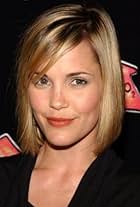
“Maggie Flanigan taught me the true meaning of artistry, passion, and professionalism. I am certain that I continue to work as an actress because of my training with Maggie. At every audition and every performance, her guiding voice is with me. It is a gift beyond measure.”

“Maggie Flanigan is uncompromising, her instincts as a teacher are razor sharp. She doesn’t miss a beat”

“Maggie Flanigan has been one of the most important people in my artistic life. I want to work with Maggie trained actors. As an actor myself, she is my first source. I do not say this lightly, if you are serious about acting, and willing to work very hard, then go to Maggie.”

“Maggie helped me find my sense of truth, an actors greatest asset. Maggie is an expert at instilling that vital ingredient, which allows an actor’s potential to become limitless. My work will forever be rooted in the clarity and honesty she helped me develop.”

“After working for ten years, I did the 2 year program, and now feel that I have the tools I need to become the actor I’ve always dreamed of being. Maggie Flanigan instilled in me a clear sense of truth and a standard of perfection. I am a better actor because of this studio.”

“As an actor, the core of what you have to rely on is your sense of truth and humanity. Maggie allowed me to discover and embrace mine. Trusting my sense of humanity and truth has given me the ability to take risks in my work and my career decisions.”

“Maggie Flanigan has the unique ability to get an actor to the essence of what is true in a moment. She creates a safe and caring environment in which to work.”

“Maggie Flanigan introduced me to my own spirit and my own sense of Truth. Her passion for teaching and ability to communicate are rare gifts to any actor looking for a technique to set his or her talent free. Maggie’s voice has been the one constant guide in my career.”

